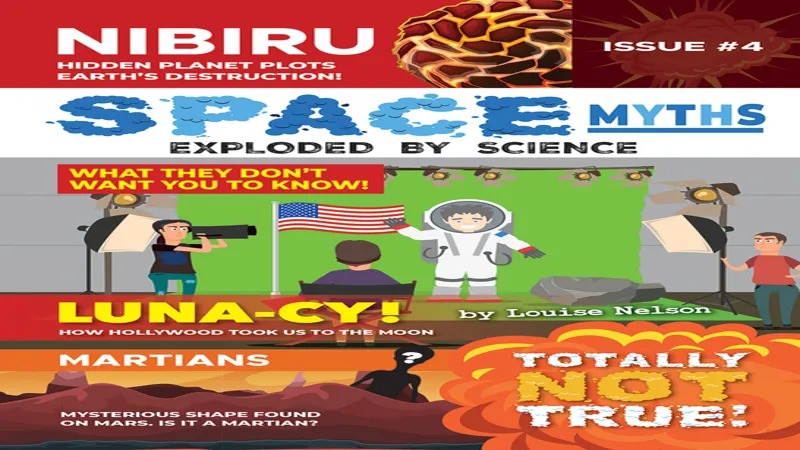Space has always captivated our imagination, inspiring countless stories in movies, TV shows, and video games. However, these portrayals often blur the lines between fact and fiction, leading to widespread misconceptions about the cosmos. From the dangers of exposure to the vacuum of space to the nature of our nearest celestial bodies, many widely accepted beliefs are more myth than reality. In this exploration, we’ll debunk seven common space myths, revealing the astonishing truths that lie beyond the stars, and enhancing our understanding of the universe we inhabit.
| Myth Number | Myth | Reality | Explanation |
|---|---|---|---|
| 1 | You Wouldn’t Be Instantly Flash-Frozen in Space Without a Suit | It takes a long time to freeze in space; you would die from other causes first. | Space is cold, but there’s no air to conduct heat away, so you would lose heat through radiation, which is slow. |
Understanding Space Myths
When people think about space, they often picture it based on movies, TV shows, and video games. These forms of entertainment create exciting stories, but they sometimes mix facts and fiction. Many common beliefs about space are actually myths. For instance, some think that you would instantly freeze if you were exposed to the coldness of space. However, the truth is that it takes much longer to freeze in space than most people realize.
Learning the truth about space can be really fun! Space is full of interesting facts and sometimes surprising realities. For example, many people believe that there is no water in space, but scientists have discovered vast amounts of water, even in the form of ice on moons. By understanding these myths, we can appreciate how amazing and complex the universe really is.
Frequently Asked Questions
Will I instantly freeze in space without a suit?
No, you wouldn’t freeze instantly in space. It takes hours to freeze due to slow heat loss through radiation, not from the lack of atmosphere.
Is water rare in space?
No, there’s actually a lot of water in space. Some areas have ice, and even more water exists in distant reservoirs far from Earth.
What color is the Sun really?
The Sun is actually white. It looks yellow due to atmospheric scattering, which changes how we perceive its color from Earth.
Is there a dark side of the Moon?
No, there’s no dark side of the Moon. It receives sunlight on all sides; we just can’t see the far side from Earth.
Are asteroid belts densely packed with rocks?
No, asteroid belts are not densely packed. The average distance between asteroids is about 600,000 miles, making space extremely vast.
Is Mercury the hottest planet in our solar system?
No, Venus is the hottest planet. Despite being closer to the Sun, Mercury cools down significantly on its dark side.
Is space a complete vacuum?
No, space isn’t a complete vacuum. There are still a few molecules floating around, but it’s very close to being one.
Summary
Many common beliefs about space come from movies and games rather than real science. For instance, people think you would instantly freeze in space without a suit, but it actually takes hours to freeze due to the lack of heat conduction. There’s also a misconception that water is scarce in space, but there are vast amounts, especially on moons like those of Jupiter and Saturn. Additionally, the Sun appears yellow because of Earth’s atmosphere, and there is no “dark side” of the Moon—both sides receive sunlight. Finally, space isn’t a complete vacuum; there are still some molecules present.
